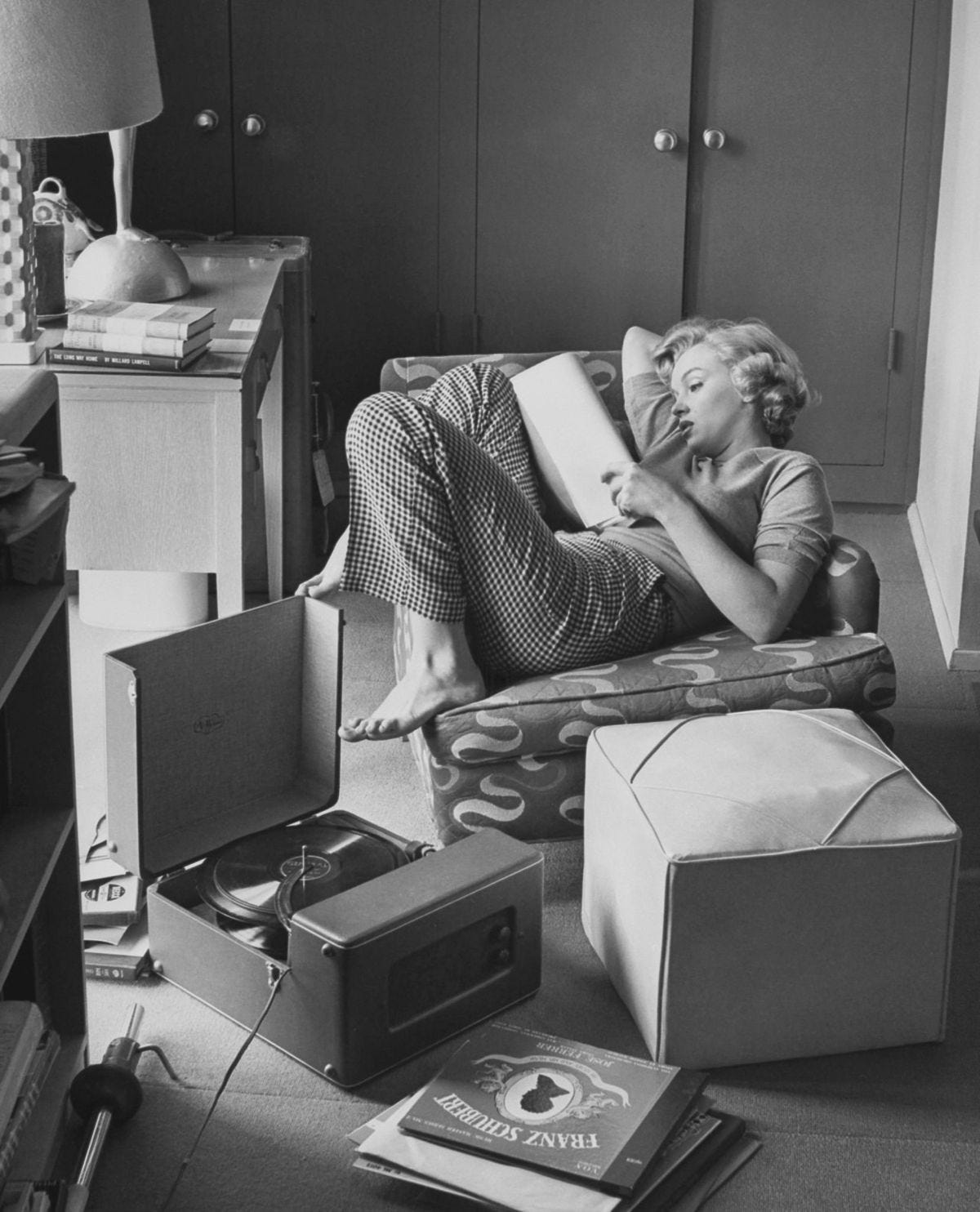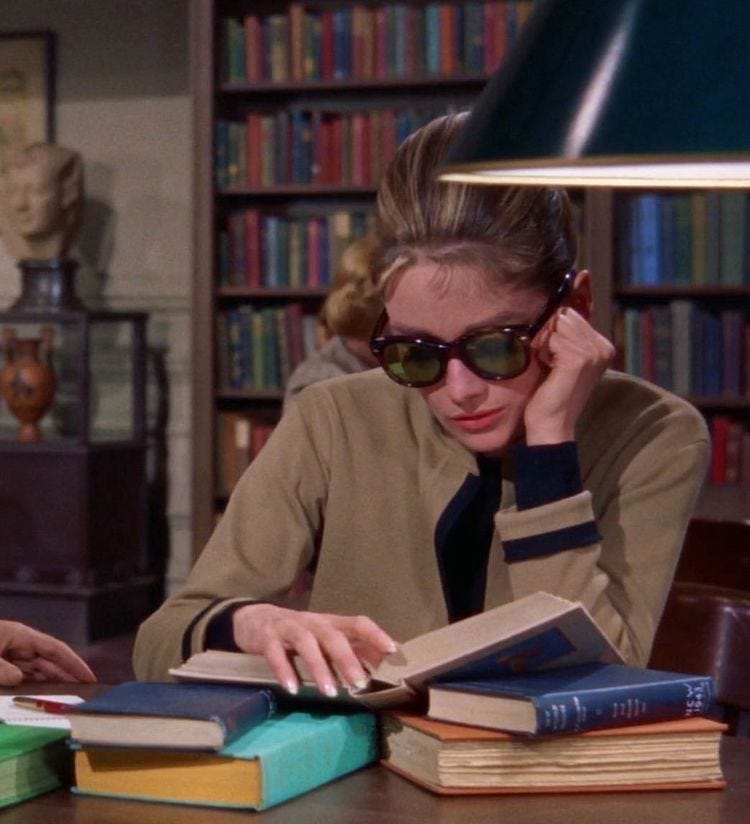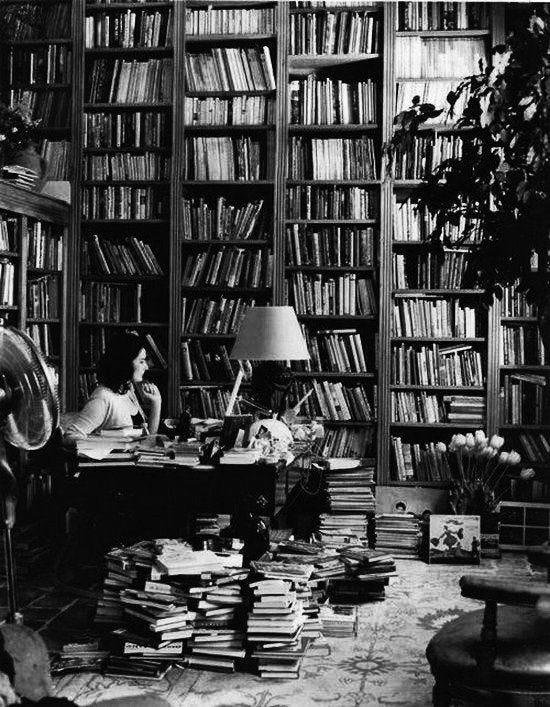12 classics in 12 months (list included)
week 0/52: a year of reading the books I always said I would read - but haven't
Mark Twain says, "Classics are something that everybody wants to have read and nobody wants to read." I have never read anything more true. From Charles Dickens’ Great Expectations to Jane Austen's Pride and Prejudice, to the meaty 1,200-page doorstopper War and Peace by Leo Tolstoy, I am certain I’m not alone in the desire to have read these great works while completely avoiding the pain of muddling through the words to get to the benefit of reading them.
I have gone to extreme measures to avoid reading these books over the years. From cracking Anna Karenina open at least 12 times, fully intending to read it over a weekend, only to make it no further than five pages before setting it down again—to watching Sense and Sensibility and convincing myself, “watching the movie must be a good alternative.” Right?
These are the "one day" books. The books we know, deep down, would make us better somehow. Like eating broccoli instead of chocolate cake. They have to be better for our minds than 50 Shades of Grey . . . they just have to be.
The “one day” books. One day I’ll read them. One day when I am old and retired and have all the time in the world—but let’s be real. When we turn 65 and retire, we won’t read them. We’ll be traveling, golfing, or resolving to watch the film instead (again). Meanwhile, they take up space on our shelves, collecting dust under the weight of our best intentions. They intimidate us. They taunt us. And until now, the most useful way they’ve served in my home has been as doorstops or to keep the other books from falling over.
(P.S. A 1,200-page book won’t fall over no matter how hard you try. It’s as sturdy as a rock. A tornado could blow through and it would be the only thing left standing.)
When I started my career as an author, I had to ask myself—what am I doing? If I am willing to spend days on end reading every other book on the shelf, why am I avoiding the classics from which so many of those other books originated? If anything, the classics are the best place to learn how to become a better writer.
Then I realized: I’m just scared. Scared I wouldn’t be intelligent enough to understand the themes and complex structure. That I would sit reading the same page over and over wondering if I had picked up Tolstoys original Russian vs the English translation. Afraid it would make me feel incompetent as an author and want to quit altogether. Afraid it would feel like when my English teacher Mr. Edwards called on me to explain the primary themes in Romeo & Juliet and I had nothin’. Afraid I would get 80% of the way through, hate it, or be bored to tears—and that would somehow mean I was failing as a human.
Then I asked myself: So what? So what if that happens?
Well, then it happens.
The worst thing that could happen is I don’t understand what the hell I’m reading. Who does 100% of the time? Best-case scenario, I open my mind to a new world, finally get the hype, the references, the inspirations these books have provided for millions of people over hundreds of years.
Just like anything in life, the “I’ll do it someday” trap is an insidious and dangerous creature. It creates a life of passivity. I am done.
I figured, let’s do something about it.
I selected 12 books from the 19th century (simply because these interest me the most—maybe next year I’ll do the 20th century if this goes well. But I’m getting ahead of myself). I’m committing to reading one classic each month (but skipping the ones we slogged through in high school). Only the books I’ve told myself, time and again, “one day I’ll read that.”
I’m doing the hard thing. Eating the frog. And while I’m scared I’ll fail in front of strangers on the internet (or worse—no one at all), that’s a small price to pay for the potential payoff—for me, and maybe for you, if you come along.
Whether you’re here to read each book with me, to finally tackle that one book you’ve always promised yourself you’d read, or just to watch me crash and burn for entertainment—welcome. Come one, come all.
I recently watched Julie and Julia and was inspired by Julie’s commitment to doing something that scared the hell out of her for an entire year and documenting the journey. Facing her demons, her edges, her limits. And while I loathe cooking and love reading and writing, this is my version of cooking my way through Julia Child’s epic French cookbook.
My hope is that not only will I become a better writer in the process—but maybe I’ll glean inspiration, become more well-read, well-spoken, maybe even more cultured. Who knows? It might open my mind and expand my understanding of things I have yet to understand (and may never will). And maybe, just maybe, I’ll pick up a few friends along the way who are seeking those very same things (aka—you).
There is beauty in keeping commitments to ourselves—especially with the stuff that feels stretchy and uncomfortable. And while I see myself as someone who has great strength in discipline and willpower, this is the one place I could use some support and accountability. That’s the very reason it will help me grow in ways I never thought possible.
A wise person once told me, “the thing we resist holds the key to our freedom.” Who knows what kind of liberation lies on the other side of this journey—for me, or for you.
I’d love nothing more than for you to join me. Maybe even drop the books you’ve been putting off (I’m always open to expanding my list). I’ll be back each Thursday with updates! Possibly even some YouTube videos too.
Here’s the list. It’s 100% subject to change (and definitely will, based on my mood). I’m starting with Anna Karenina since it’s a beast, and I figure the momentum of starting something new will carry me through. Based on how many breakdowns I have during this first read, I’ll have more clarity on the list’s final order.
**Challenge officially starts September 1 if you would like to join along. If there is greater interest than I expect, I would love to do a call where we can all discuss! A book club of sorts. Comment below if that is you.
12 CLASSICS IN 12 MONTHS
Pride and Prejudice (Jane Austen, 1813)
Wuthering Heights (Emily Brontë, 1847)
Jane Eyre (Charlotte Brontë, 1847)
Middlemarch (George Eliot, 1871–72)
Great Expectations (Charles Dickens, 1861)
Vanity Fair (William Thackeray, 1847–48)
Anna Karenina (Leo Tolstoy, 1877)
Crime and Punishment (Fyodor Dostoevsky, 1866)
War and Peace (Leo Tolstoy, 1869)
Madame Bovary (Gustave Flaubert, 1856)
Moby-Dick (Herman Melville, 1851)
Little Women (Louisa May Alcott, 1868)
The Portrait of a Lady (Henry James, 1881)
Bonus Poetry:
Collected Poems (Emily Dickinson, 1850s–1880s)
Leaves of Grass (Walt Whitman, 1855)
I included an extra in case one completely defeats me. My motto here: done is better than perfect, team.
Let’s un-rot our brains one classic 19th-century masterpiece at a time.
Until next week,
Aria





